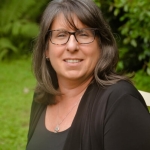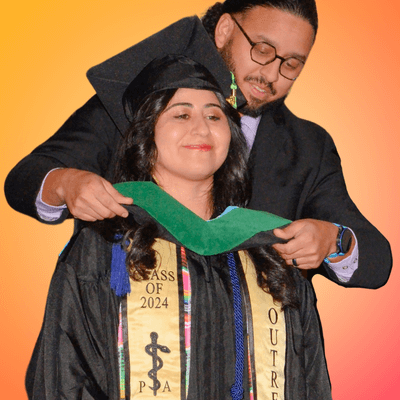Verónica Martínez Vargas: A Dreamer Reaches her Dream of Becoming a Clinician
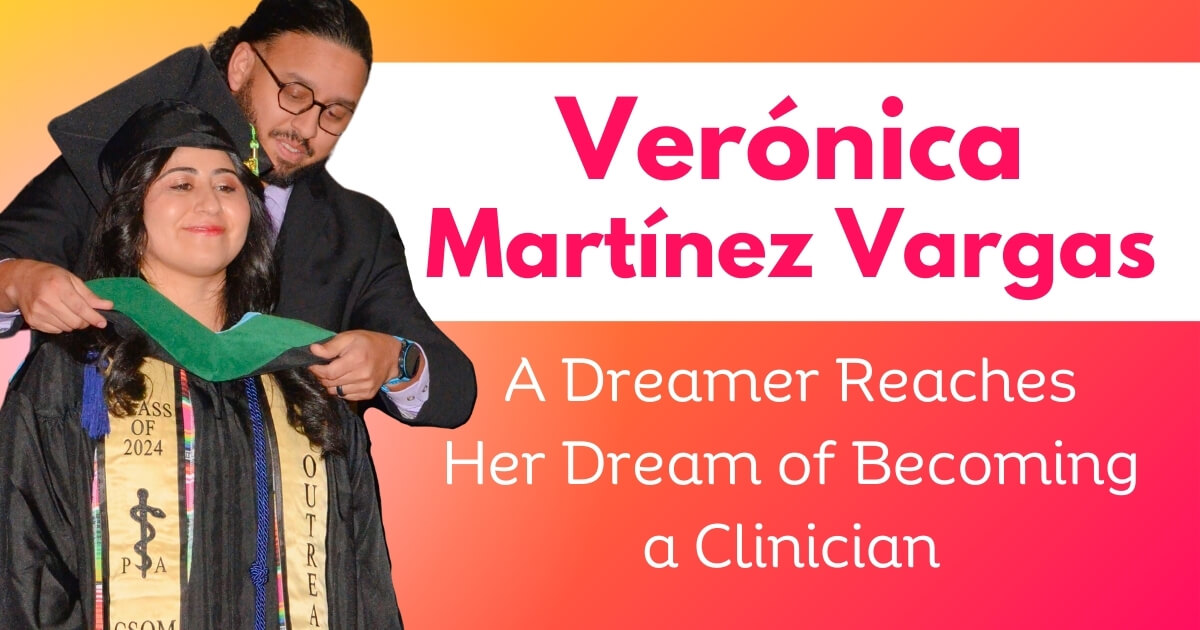
Dreams do come true.
That is what I thought last week as I witnessed Verónica Martínez Vargas graduate from one of the country’s oldest Physician Assistant Studies program at the City University of New York (CUNY), School of Medicine. Verónica is a Dreamer or Deferred Action for Childhood Arrivals (DACA) recipient, a group of nearly 835,000 immigrants who came to the United States as children and who are lawfully permitted to work, attend school, and live without constant fear of deportation – but the road to her diploma was crisscrossed with barriers.
Verónica immigrated to the US when she was 10, and her family worked hard, as did Verónica, to unlock an academic path for her. Despite the hardships that go hand in hand with being an immigrant with family members in two countries, Verónica ultimately graduated from the same community high school where my children went to school and later enrolled at the local community college and then Salisbury University while working at various jobs to pay tuition.
Verónica came into my life in 2012 when she and another Dreamer crossed the disciplinary aisle as undergraduates at Salisbury University and met up with my husband, Tim Dunn, a professor of sociology and an immigration scholar. They were seeking advice regarding immigration policy and especially how to create more access and opportunities for immigrant students, especially Dreamers, in higher education. Verónica and a group of high school and college students were working with a statewide coalition to help Maryland Dreamers become eligible for in-state tuition. Here on the Eastern Shore, in Maryland’s Wicomico County, home to Salisbury University, these students knocked on 3,000 doors to convince voters in this conservative region to support their cause. The state’s DREAM Act not only passed in Maryland, but it passed in Wicomico County (typically a “red” / conservative county).
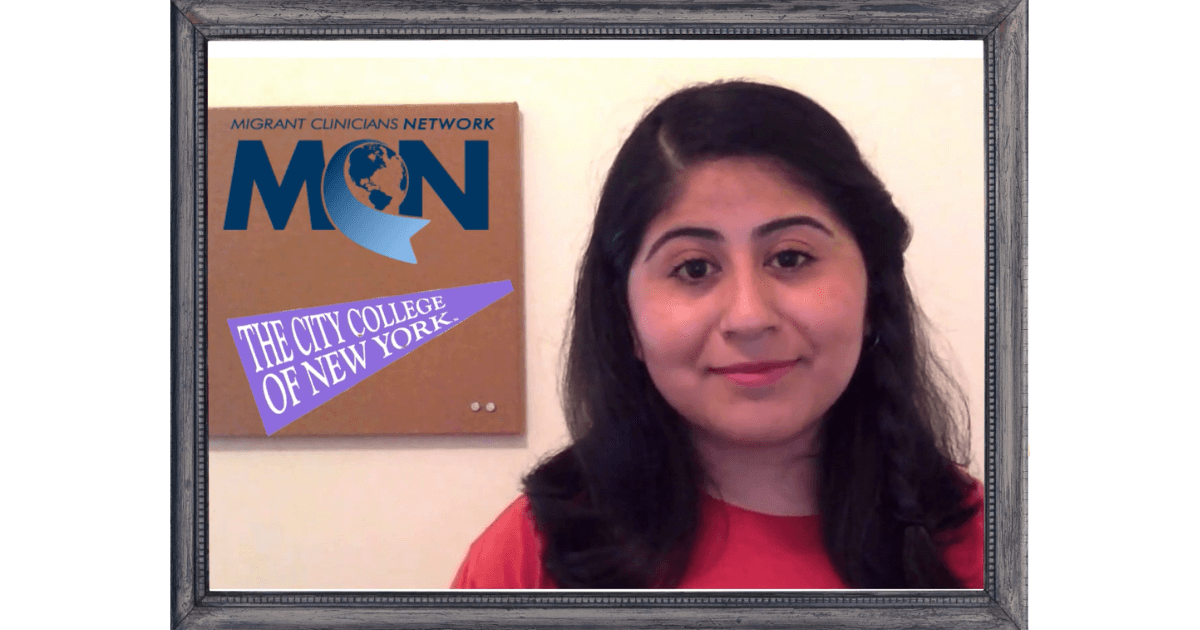
She later took Tim’s immigration class where she heard about Migrant Clinicians Network. Verónica knew she wanted to one day go back to school and be a clinician. After graduating from Salisbury University with a BS degree in Physics, she worked in various health care settings to gain experience and save money for the next phase of her education. She also volunteered for MCN in our Salisbury office and various community organizations to help immigrants in our community know their rights and access health care.
When COVID hit our area, Verónica became a resource for our immigrant community, a community hard-hit due to so many immigrants working in essential services including the poultry plants. Verónica ultimately worked with MCN as community health worker and was key to helping us develop our successful “Vaccination Is…” materials.
After a lot of hard work, she was accepted to CUNY, but barriers continued to be erected: her immigration status made her ineligible for traditional student loans. And the dream of becoming a clinician seemed nearly impossible. To kickstart her efforts, MCN supported a GoFundMe page that garnered enough money for Verónica to get started at CUNY. Once there, she advocated for CUNY to join a private collegiate program that helps Dreamers obtain loans and she was ultimately able to obtain funding.
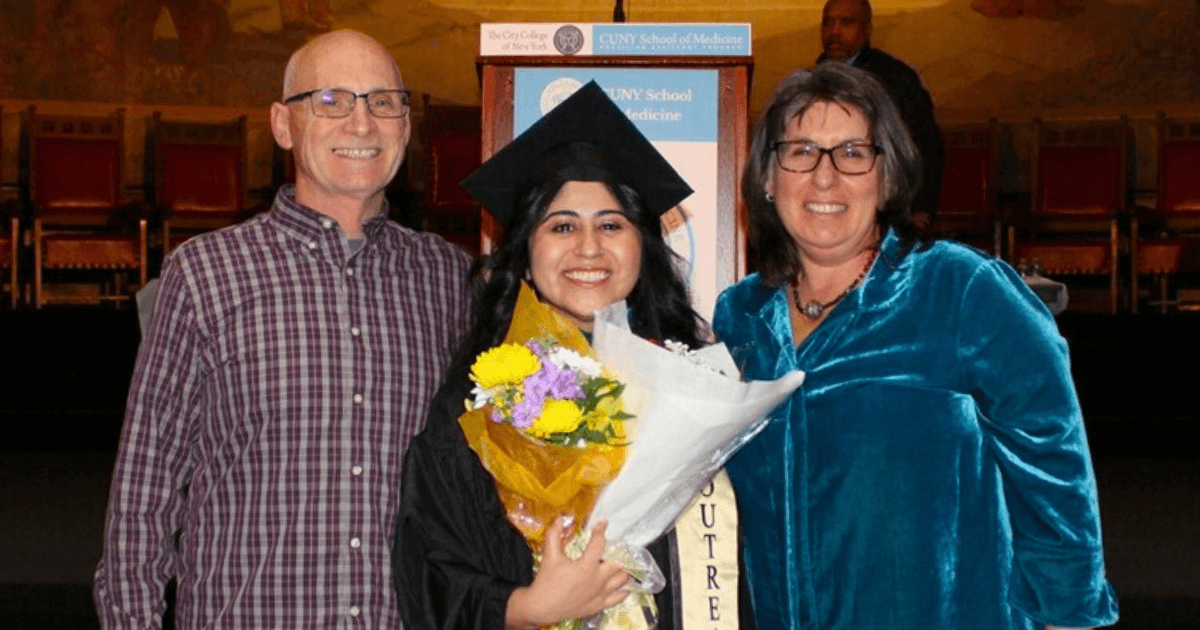
Tim Dunn, Verónica Martínez Vargas, and Amy Liebman at the graduation ceremony.
Tim and I, along with many of Verónica’s mentors, family, and friends, were full of joy watching this new group of clinicians, many of whom were migrants themselves, graduate to serve their community. Verónica’s 2024 CUNY graduating class of 31 Physician Assistants included immigrants or children of immigrants from all over the world. Over half were first-generation students – students whose parents did not graduate from college. To underscore this diversity, the audience of family and friends were welcomed by students from the incoming class of 2026 with a hello in their native language including Spanish, Portuguese, Haitian Creole, Hindi, Mandarin, Vietnamese, Bengali, Amharic, Oromo, and Greek.
This renowned PA program, founded in 1973 at Harlem Hospital, has trained generations of students from historically underrepresented backgrounds to care for underserved communities. Among the alumni gathering for the graduation was Annie Brown, PA, the first African American woman ever to become a Physician Assistant. Dean Carmen Renée Green, MD, teary with pride, congratulated the Class of 2024, reminding the graduates that they are “healers, leaders, and scholars…on the front lines of health equity,” and that they will see patients that “may never have been served by a health care professional who looks like them.”
Dean Green along with CUNY’s Chancellor, Dr. Matos Rodríguez, reminded the students of CUNY’s mission that embraces what it means to be a just and democratic society. Since 1847, CUNY has worked to ensure that students who did not have resources could go to college. Dr. Rodríguez told the graduates that it was now up to them to help “close the gap in the way our medical system cares for the underserved…with your eye always turned to the most vulnerable.”
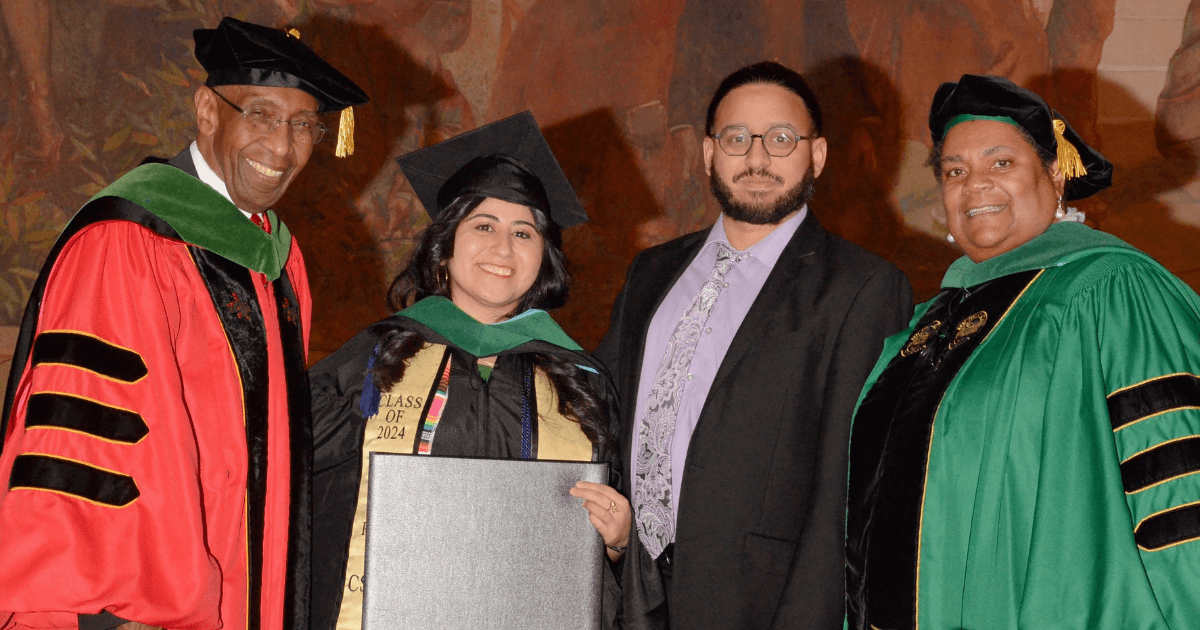
Robert L. Johnson, MD, FAAP, Keynote Speaker and Recipient of the Dean’s Social Mission Award;
Verónica Martínez Vargas, PA, Dawit E. Demissie, MD, mentor from Salisbury;
Dean Carmen Renée Green, MD, Dean, CUNY School of Medicine
“Thank you for witnessing my accomplishment and helping me get here,” Verónica told me. “The support I felt the moment the GoFundMe went up and my community, family, and friends donated…[It] rekindled ‘mi esperanza’ and gave me a push to keep going!”
Verónica is now studying hard to pass her board exams and has a job lined up in internal medicine at Bellevue Hospital. Wanting to gain more experience caring for the underserved, her longer-term goal is to return to the Eastern Shore to care for the immigrant community.
Verónica is part of an important new generation of migrant clinicians, clinicians who were once migrants themselves. In 2020, 43,500 Dreamers worked in the health care and social assistance industries, industries that are suffering from chronic staffing shortages. Like Verónica, Dreamer clinicians often aim to serve their own communities, providing culturally competent care to community members who are often relieved to see a clinician with whom they can relate.
I am filled with pride as I watch Verónica achieve her dream and carry out her commitment to underserved. While Verónica always expresses deep gratitude to her mentors who nudged and helped her along her way, in the end, it is Verónica who mentored all of us, showing us that dreams do come true.
- Log in to post comments
